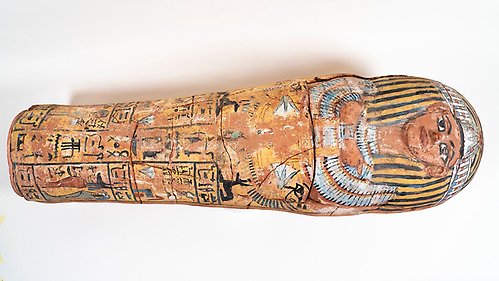Press releases
Filtering
Search result
Your search returned 842 hits.
- Return of a cermic child sarcophagus to university museum Gustavianum2024-04-25
Uppsala University Museum Gustavianum and the Museum of Fine Arts, Boston have reached an agreement on the return of an ancient Egyptian ceramic child sarcophagus, dated to the 19th Dynasty (1295–1186 …

- Computer game in school made students better at detecting fake news2024-04-24
A computer game helped upper secondary school students become better at distinguishing between reliable and misleading news. This is shown by a study conducted by researchers at Uppsala University and …

- Early detection of language disorders helps children obtain right interventions2024-04-02
New screening tools in child health care are effective in identifying early language and communication difficulties in children. This is shown by two studies based on more than 6,000 children carried …

- New antibiotic class effective against multidrug-resistant bacteria2024-04-01
Scientists at Uppsala University have discovered a new class of antibiotics with potent activity against multi-drug resistant bacteria, and have shown that it cures bloodstream infections in mice. The …
- Vole fever spreading further south2024-03-21
Researchers have discovered that bank voles in Skåne, southern Sweden, carry a virus that can cause hemorrhagic fever in humans. This finding was made more than 500 km south of the previously known …

- When words make you sick2024-03-19
In a new book, experts in a variety of fields explore nocebo effects – how negative expectations concerning health can make a person sick. It is the first time a book has been written on this subject.

- New discovery concerning occurrence of antibiotic resistance2024-03-18
A new study shows how heteroresistance, a transient resistance common in many bacteria, can act as a precursor to the development of antibiotic resistance. According to researchers at Uppsala …

- New EU rules toothless against tax avoidance by multinationals2024-03-18
The EU and OECD have jointly developed rules to prevent companies from exploiting differences in national legislation for financial gain. According to a new thesis/study at Uppsala University, …

- Lower survival rates for women than men with germ cell tumours2024-03-12
Women with a type of ovarian cancer known as germ cell tumours have a worse prognosis than men with similar tumours, i.e. testicular cancer. After five years with the disease, 98 percent of men were …

- Eight new deep-sea species of marine sponges discovered2024-03-07
Despite marine sponges being widespread on our planet, their biodiversity and distribution is still poorly known. Even though the Mediterranean Sea is the most explored sea on Earth, a study by Díaz …

Showing 10 of 842 hits.
